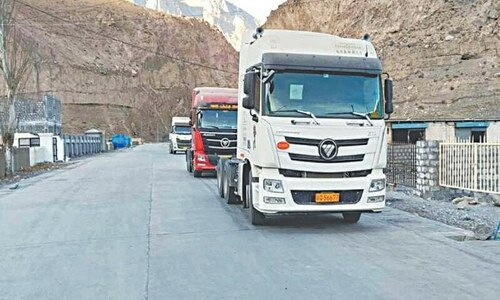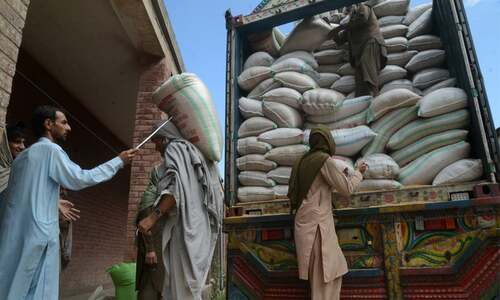IN the face of a crumbling public-sector healthcare delivery system, and seriously exorbitant cost of private-sector facilities, the option of telemedicine seems to be a practical way out for many in the country. Before you discard it as a fancy idea, I would quickly share my telemedicine experience with a heart overflowing with gratitude for one of the leading tele- medicine helplines in Pakistan, a service that went above and beyond the call of duty during a critical moment that my family faced recently.
My father, aged 45 and having a history of high blood pressure, suffered a stroke during the last days of Ramazan. Like thousands of others, I was observing itikaf, a period of seclusion dedicated to prayers within the mosque. At the time the tragedy struck, my mother was the lone functional adult in the house. Giving her company were my two younger sisters aged 11 and 14. Panicked and confused by my father’s condition, she made the crucial call to the telemedicine helpline, which I had initially thought would only be some sort of a hand-hygiene helpline during the Covid pandemic. Trust me, it was anything but. To our surprise, the helpline had a range of doctors and specialists, and the swift and professional intervention of one of those doctors proved life-saving for my father, and equally life-saving for his family.
The doctor concerned not only provided critical guidance on my father’s condition, but also recognised the unique challenge of having only females present at home. She promptly arranged for an ambulance to transport my father to the nearby National Institute of Cardiovascular Diseases (NICVD), ensuring immediate medical attention. My father spent three days hospitalised, and is thankfully on the road to recovery.
I have shared this story because it is a powerful testament to the transformative potential of telemedicine. It sheds light on its ability to bridge geographical and situational gaps in healthcare access, ensuring critical medical care reaches those who need it the most even in an emergency. The telemedicine helpline service used was of critical value in our situation, but for the true potential of telemedicine to be realised, wider public awareness and increased accessibility across Pakistan are essential elements. There is no reason not to do this.
The government has a key role to play in fostering a robust telemedicine infra- structure. By implementing supportive policies and promoting wider adoption, it can empower more families, parti-cularly those in remote areas or facing critical circumstances, to access this potentially life-saving technology-based facility. This will ensure a more equitable and accessible healthcare landscape for all the people of Pakistan.
Shazil Ahmed
Karachi
Published in Dawn, May 3rd, 2024











































Dear visitor, the comments section is undergoing an overhaul and will return soon.